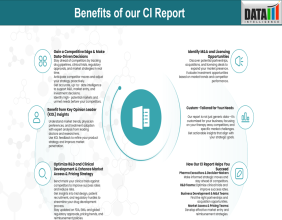Highlights:
- High Court Ruling: Barclays lost an appeal against the Financial Ombudsman’s decision on a car loan commission dispute.
- Car Finance Under Scrutiny: The ruling highlights broader concerns for UK banks over commission transparency.
- Next Steps: Barclays plans to appeal the decision while industry-wide implications grow for lenders.
Barclays PLC (LSE:BARC) faced a significant setback as the High Court rejected its appeal over a ruling by the Financial Ombudsman Service (FOS) regarding an undisclosed commission on a car finance loan. The case revolves around a £1,300 commission Barclays added to a car loan arranged in 2018 without adequately informing the borrower.
The bank expressed disappointment in the outcome and confirmed its intention to appeal the decision further. “This challenge related to a single, specific case on which we disagreed with the Financial Ombudsman Service’s decision,” Barclays stated. “We are disappointed in the court’s ruling and will be appealing.”
The Financial Conduct Authority (FCA) welcomed the judgment, with the regulator reiterating its stance on transparency. “The judge found that the Financial Ombudsman had interpreted our rules and the Consumer Credit Act 1974 correctly when deciding that the lender and car dealer involved in this case did not meet the relevant standards in place at the time,” the FCA said in a statement.
Broader Implications for UK Banks
The ruling comes amid mounting concerns for UK banks regarding the transparency of commission payments in car finance agreements. Barclays’ case is one of many emerging disputes as regulators scrutinize practices that may have disadvantaged consumers.
Lloyds Banking Group and Close Brothers, while not directly involved in this particular case, are among other lenders under pressure. A previous Court of Appeal ruling raised questions over whether commission payments should have been explicitly disclosed to borrowers, potentially exposing banks to significant liabilities.
Shares in Barclays fell 0.8% following the news, while Lloyds Banking Group and Close Brothers dropped 1.1% and 1.6%, respectively. The declines reflect broader investor unease over the potential financial impact of ongoing car finance investigations.
Regulatory Landscape
The FCA has placed increased focus on ensuring fair treatment of customers in car finance agreements. It aims to hold lenders and car dealers accountable for adhering to disclosure rules, particularly concerning commissions that influence loan terms and affordability.
The regulator’s ongoing investigations highlight its commitment to protecting consumers from hidden costs. The High Court’s decision further strengthens the FCA’s position and sets a precedent that may shape future rulings on similar cases.
Barclays’ Next Steps
Barclays’ plan to appeal the decision signals the importance of the case to the bank’s operations and reputation. The outcome of the appeal will be closely watched, as it may have far-reaching consequences for the industry’s handling of historical car finance agreements.
Industry experts suggest this ruling could trigger a wave of claims against banks and car finance providers, with borrowers increasingly aware of their rights to challenge undisclosed fees.
Conclusion
The High Court’s decision against Barclays underscores the growing scrutiny on car finance commission practices in the UK. While the bank prepares to appeal, the ruling sets a critical precedent for financial institutions and regulators alike. With wider implications for the sector, the case marks another chapter in the ongoing effort to ensure transparency and fairness in consumer lending.



